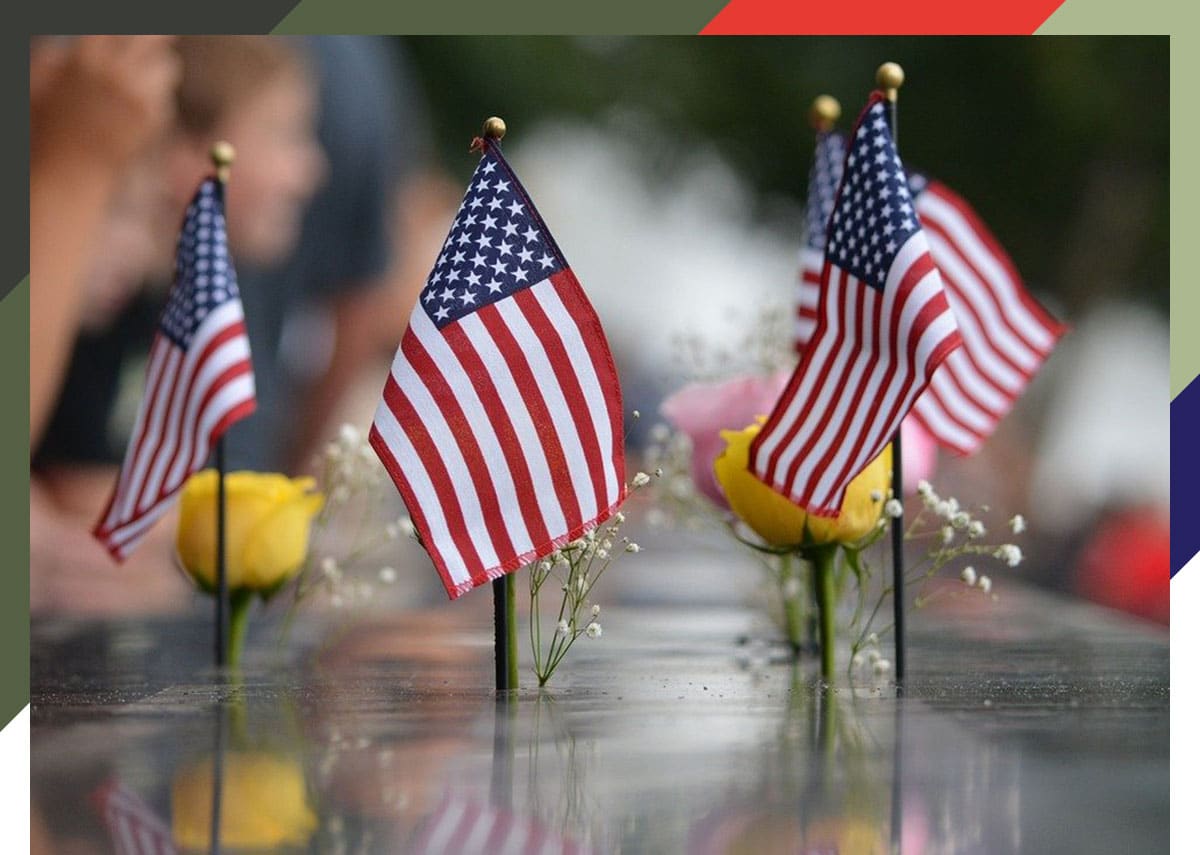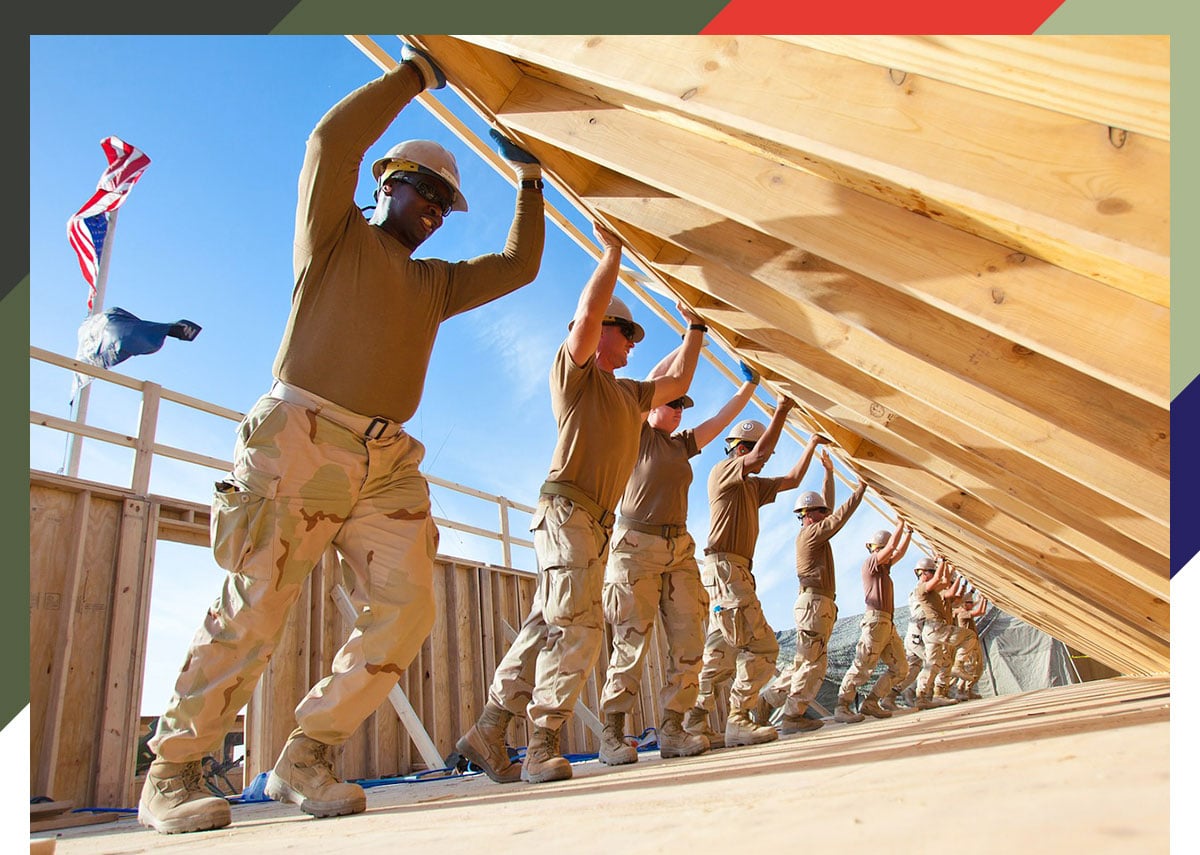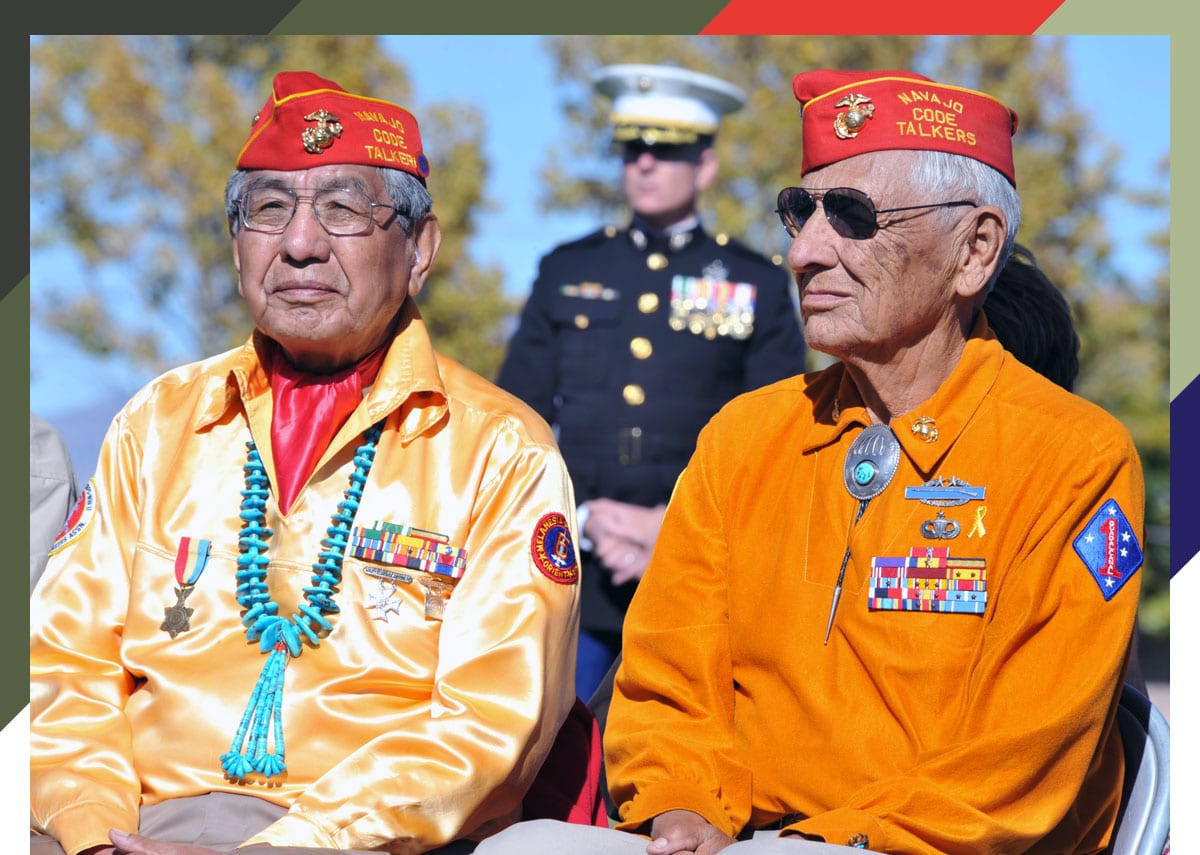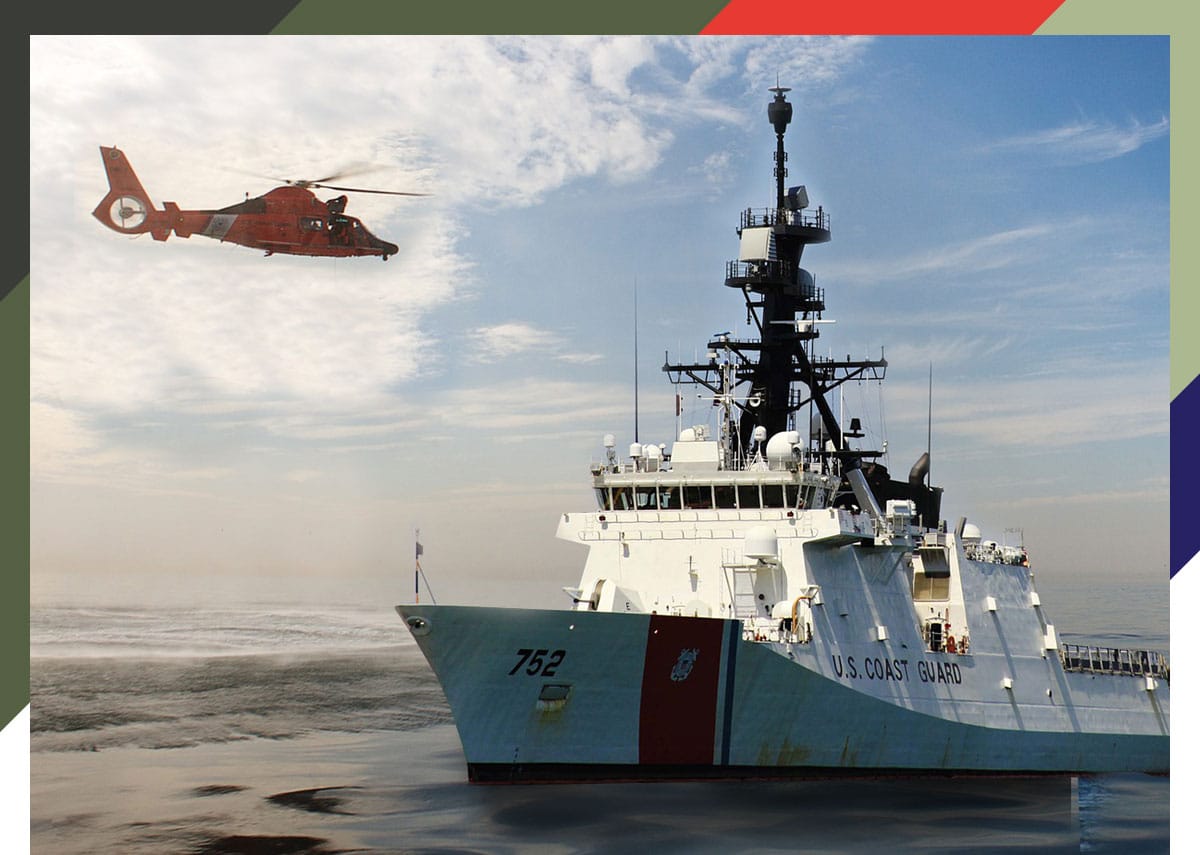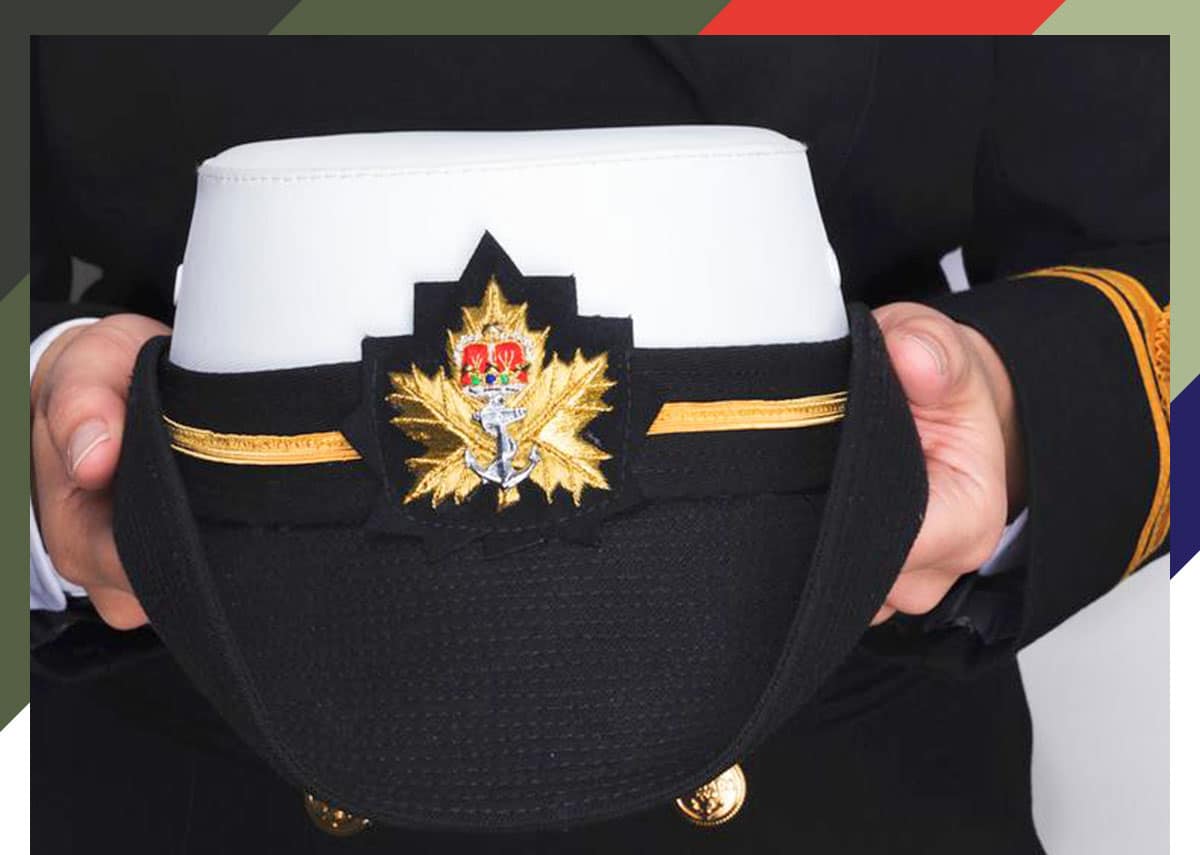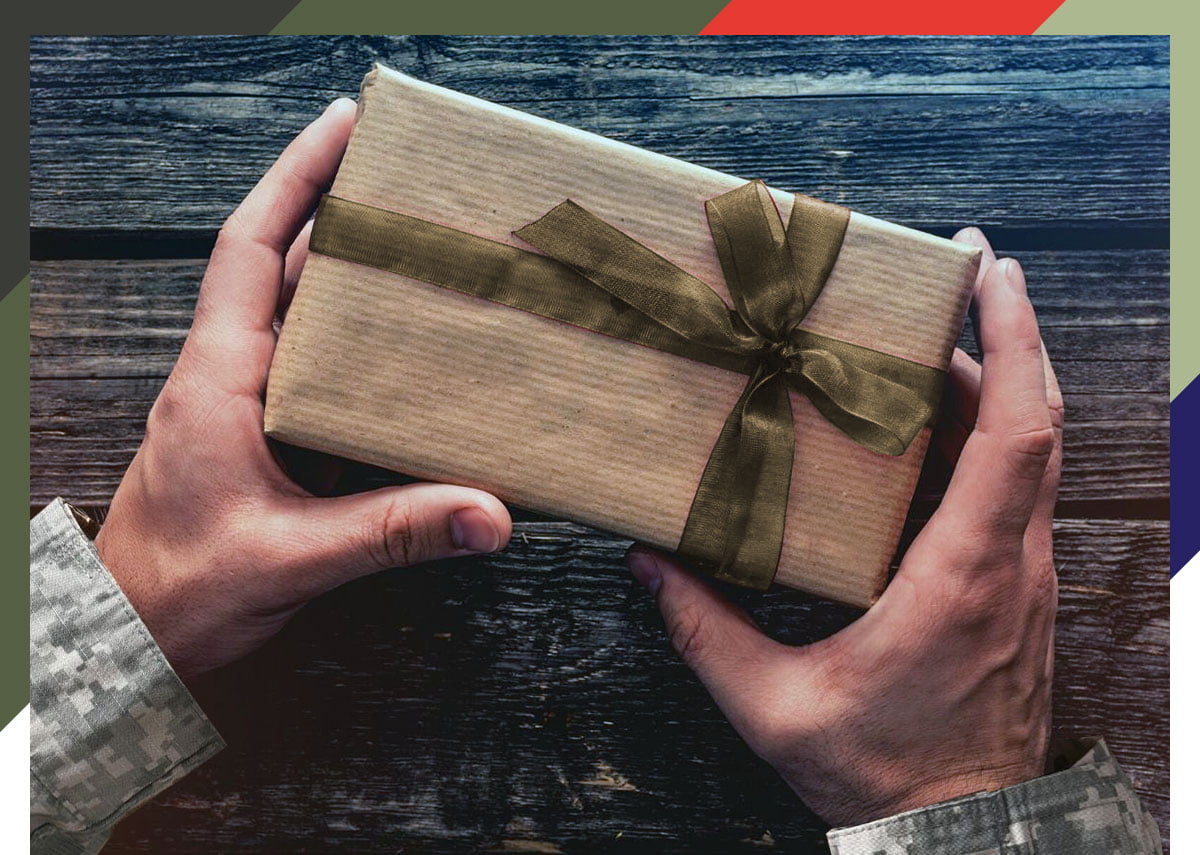Most people remember exactly where they were and what they were doing when they learned that both towers of the World Trade Center in New York City and the Pentagon were attacked by terrorists using hijacked commercial airlines, and when United Airlines Flight 93 crashed in Pennsylvania, a foiled attack that killed everyone aboard.
After the terrible attacks on civilians in our country, heroes assembled at the plane crash sites to try to find survivors among the wreckage, including firefighters, police officers, and members of our armed forces.
Although Patriot Day is not a federal holiday, so schools and businesses remain open, people still take steps to observe the day of mourning. -Some people hold a moment of silence at the same time the jet hit the first tower of the World Trade Center: 8:46 a.m. Eastern Daylight Time. -Some New Yorkers spend the day quietly and without flair, especially those who experienced the aftermath or lost loved ones in the attacks. -The United States flag is flown at half-mast throughout the world. -Memorial events are held in honor of the 2,977 victims who perished and those who lost their lives during search and rescue efforts. -Non-profit organizations assemble volunteer opportunities for special projects across the country.
If you’re looking for a unique way to memorialize Patriot Day, consider doing small things close to home to impact the lives of those around you. You can thank your local firefighters for their everyday bravery in the face of danger as they rescue people from burning buildings. You can thank your local National Guard unit for their willingness to sacrifice their time to serve regionally and sometimes overseas. You can say thanks to the troops stationed at one of America’s many military bases. If you know of a hero from the September 11 attacks, say thank you to them, too. Receiving a note or snack box will make their day. Do something kind for someone else. Display a flag. Take your own moment of silence. Donate to an organization with a mission important to you. Research a nonprofit or charity group that you think is doing amazing work for the American people, and make a monetary donation to them to contribute to their projects. At My Hero Crate, we pledge to donate a portion of our proceeds to a veteran-focused nonprofit for every military care package we sell. If you’re able to make a regular donation, rather than an annual one, consider doing it.
Are you doing something special in observance of this important day? Tag us on Instagram @myherocrate to show us how you’re paying tribute.
Join My Hero Crate’s Military Care Package Experts in Solemnly Acknowledging This Holiday
The news was devastating and played 24/7 for weeks as the American people reeled in shock, and New York, Virginia, and Pennsylvania began clean-up efforts and the search for survivors; there weren’t many.
Unlike other tragic events like this one, we remember it all by the date: September 11, 2001.How the Day of Mourning Came to Be
Just over a month later, on October 25, 2001, the United States House of Representatives passed a bill to make September 11 a national day of mourning. The Senate unanimously voted in favor. As a result, President George W. Bush declared the first Patriot Day in 2002.How to Observe Patriot Day
-Americans are encouraged to display flags outside their homes to express their love of the country.How You Can Observe this Day
Send a thank-you letter or snack box.
Spend your day performing good deeds and requesting nothing in return. Gather a few extra shopping carts and put them in the cart return at the grocery store. Pick up litter in your local park. Offer to mow an elderly neighbor’s lawn for free.
Fly an American flag in your yard to display your patriotism for all to see. Be sure to follow Flag Code and be respectful as you observe the day.
At 8:46 a.m. eastern time, sit quietly, with the TV off and your phone on vibrate and reflect on why you’re thankful for living in the U.S. as you remember those who perished in 2001.
Let Us Know Your Plans for Patriot Day
Tag: soldier care package
Why Human Connection is Important
A Care Package from My Hero Crate Can Help Provide It
Humans are social creatures. Sociologists and archaeologists have uncovered proof that even ancient humans lived together, hunted together, and enjoyed social activities. These preferences for socialization are thoroughly ingrained in our daily lives. They provide us with parts of our identity and teach us skills to lead successful lives. Having human connection is so vitally important, and for many reasons.
Joining the military can feel isolating, especially as deployments put unimaginable physical distance between soldiers and their families and other loved ones. Thankfully, part of being in the American armed forces is the camaraderie and team spirit among military branches and units. Discharging from the military, then, can be quite difficult, as veterans are forced back into the civilian world among people who don’t fully understand their experiences.
So, how can armed services members and veterans still get the valuable human connections and understanding they need when faced with a sense of isolation? And what does human connection look like? This month, My Hero Crate explores this important topic.
Perception of Human Connection
Depending on the environment you grew up in, your personal preferences, and your mental state, human connection may look different to you than it does to others. Data from university research shows that simply having access to a supportive person is sufficient to help someone adapt to stress — including stress of a new lifestyle.
In this case, there is no physical, ongoing human connection, but just the knowledge that it is available. Sometimes, people who are particularly independent need only this to feel connected. However, other people require more intensive interaction to feel a sense of belonging and safety. Human connection looks different to everyone.
The Benefits of Belonging
Having a support system and feeling a sense of belonging is not only necessary to human development, but it also helps our health.
The lack of human connection has been shown to be more harmful to your health than obesity, smoking, and high blood pressure individually. Connections also can relieve feelings of anxiety and depression and help us regulate emotions. When we feel a sense of belonging or that people care about us, we tend to have higher self-esteem. People who feel they have strong support systems, including friends and family, tend to have stronger immune systems, too!
Human connection can also help you live longer. A review of 148 separate scientific studies with more than 300,000 participants shows that those with stronger social relationships had a 50 percent increased likelihood of lengthier survival times. These results remained true across a number of factors, including age, initial health status, and cause of death.
Social connectivity and a sense of belonging also decrease the risk of suicide. Although quite a few factors lower the risk of suicide, one of these is connectedness. According to the Centers for Disease Control and Prevention, connectedness is, “the degree to which a person or group is socially close, interrelated or shares resources with other persons or groups.”
Healthy relationships, friendships, and close family ties are proven to reduce the risk of suicide. This connection, then, is especially important for a demographic like military veterans, of whom 22 die of suicide per day and up to 30 percent suffer from post-traumatic stress disorder.
Getting the Connection
So how can military veterans or current personnel get the most from their opportunities for human connection? Here are a few ways you may find appealing:
-Support groups for veterans
-Volunteer opportunities for a cause you support
-Living near or with a family member or other loved one
-Weekly family dinners if you live separately
-Participating in therapy with a counselor or in a group session
-Joining a club or enrolling in a continuing education class
-Working a job with supportive coworkers and bosses
-Choosing a hobby that requires interaction with others
Show Your Support and Caring with a Military Snack Box
For family members who are far away from their loved ones in the military, showing your support can help remind your favorite soldier that you’re there for them. My Hero Crate’s military care packages can help you do that. Select a care package of your choice, and we’ll send it to your hero, no matter where they’re stationed.
Order a care package today to stay connected to your hero.
All About the Navajo Code Talkers
Celebrate Every Day with Care Packages from My Hero Crate
This year, Navajo Code Talkers Day is recognized on August 14. It’s a special day honoring the contributions of Native Americans during World War II and their contributions to the evolution of the U.S. Code related to Native American languages, as well as First Nations tribe members who participated in the U.S. military.
There is some confusion around this day, and we think it’s worthwhile to clear up some misconceptions and celebrate our First Nations heroes for their contributions to military forces.
Were Navajo Code Talkers all from the Navajo tribe?
Navajo Code Talkers Day doesn’t single out the Navajo tribe for recognition. The name of the holiday — and the code, too — are kind-of misnomers. Navajo code is a broader term for the coded speech used to fool Nazis and Japanese Imperial forces during World War II. Navajo code depended on the complex Navajo language, and it remains one of the only codes used by the U.S. military to have never been broken during conflicts.
Other tribes associated with the World War II efforts include the Cherokee, Choctaw, Comanche, and Hopi.
When was First Nations Code first used?
Some sources say First Nations languages were used as early as World War I, when the Choctaw language was used to code a message in preparation for an attack on German forces. The CIA even claims other countries may send their military members to the U.S. to study the Code after World War I.
Why was the Navajo language used?
Philip Johnston partnered with the U.S. Marines because of his expertise in the Navajo language. He’d been living on Navajo reservations since he was a child, and had the idea to create a security code based on the complex Navajo language. The Marine Corps knew they needed native speakers for the project to be a success, so they recruited 29 members of the First Nations.
Non-native Navajo speakers, like Johnston, are extremely rare. The Code was made even more secure by encrypting communications using Navajo as a word-substitution code. It utilized common cryptography games to apply to war. For example, Navajo bird names were applied to weapons of war.
What did the Code Talkers accomplish?
Aside from assuring the security of American military secrets, the Code Talkers could translate, send, and retranslate a coded message in about 150 seconds, an incredible feat that would normally have taken hours. Military history experts believe the U.S. may not have won the Battle of Iwo Jima without the Code Talkers.
Recognizing Code Talkers Today
The Navajo Code Talkers program was declassified in 1968, but it wasn’t until 1982 when President Ronald Reagan established Navajo Code Talkers Day. In 2000, President Bill Clinton awarded Congressional Gold Medals to 29 Code Talkers, followed by President George W. Bush, who presented medals to even more.
There were about 400 Navajo Code Talkers in total. As of 2019, only five were still living: John Kinsel Sr., Samuel F. Sandoval, Joe Vandever Sr., Thomas H. Begay, and Peter MacDonald.
How to Celebrate
Although the likelihood of you personally knowing any surviving Navajo Code Talkers is rare, you can still acknowledge the day by remembering and talking about their contributions to the U.S. military’s victory in World War I and World War II.
At My Hero Crate, we think every day is a good day to thank a military hero. Express your gratitude to yours with a military care package from My Hero Crate.
About the image above:
Members of the Coast Guard You Should Know
Send Your Hero Military Care Packages for All Branches of the Armed Forces
The Coast Guard is the oft-overlooked brother of the United States’ eight uniformed armed forces. These heroes defend the coast, conduct search-and-rescue missions, and enforce maritime law. That’s important business!
Just like every other branch of the military, there are famous Coast Guard veterans who served this country and became heroes. These are their stories.
Signalman First Class Douglas Munro
Called “the ultimate hero of the Coast Guard,” Canadian-born Munroe died on Guadalcanal on September 27, 1942. He commanded a group of Higgins boats in the battle and was responsible for the safe evacuation of more than 500 Marines who came under heavy fire. He used his boat as a shield. After he was wounded, his last words were, “Did they get off?” Munro knew his mission, and he gave his life to save hundreds of others.
He was posthumously awarded the Medal of Honor, the highest U.S. personal military decoration, the only member of the U.S. Coast Guard to receive the award for service in this military branch. He is also the only non-Marine to have his name on the Wall of Heroes of the National Museum of the Marine Corps.
Ida Lewis
Before the Lighthouse Service was combined with the Coast Guard, Ida Lewis spent 39 years as keeper of Lime Rock Lighthouse in Rhode Island, and an additional 15 living and working there. She is credited with saving 18 lives, her first when she was just 12 years old, and her last at 63, and was one of the first women in the Lighthouse Service.
Lime Rock Lighthouse was renamed Ida Lewis Light in her honor, along with a coastal buoy tender. She received a silver medal from the Life Saving Benevolent Association of New York, and earned a Gold Lifesaving Medal for her heroic actions.
Petty Officer 3rd Class Nathan Bruckenthal
Nathan Bruckenthal and a team of Navy personnel intercepted a boat in the Arabian Gulf in 2004. Terrorists aboard detonated a bomb as Bruckenthal and his team attempted to board. The bomb overturned Bruckenthal’s vessel.
Later, 24-year-old Bruckenthal died from his injuries — the first Coast Guard war casualty since the Vietnam War. He was posthumously awarded the Bronze Star Medal with Combat Distinguishing Device and the Purple Heart.
Lieutenant Thomas Crotty
“Jimmy” Crotty was the first Coast Guard prisoner of war since the War of 1812. After several positions in the Pacific, Crotty was attached to the Marine Corps Fourth Regiment when the Japanese forces attacked the Philippines.
As the Battle of Corregidor raged on, Crotty was captured by the Japanese and held in Cabanatuan Prison in 1942. He died there of diphtheria. His remains weren’t positively identified until 2019. He was awarded the Bronze Star, Purple Heart, and a Prisoner of War Medal.
Captain Joseph O. Doyle
A skilled boatbuilder and fisherman before joining the Coast guard, Doyle became the keeper of the Charlotte, New York Life Saving Station. In 1878, he completed two rescue missions that cemented his name in history. First, at the wreck of the schooner B.P. Dorr of Chicago, Doyle rescued six men and women aboard the boat and brought them safely to shore.
A little more than a month later, Doyle showed his bravery once again as he ordered a lantern squad to monitor the shore for any passengers of the schooner Star of Millpoint from Ontario who may have fallen overboard during a fierce storm.
For his efforts, he was awarded the Gold Lifesaving Medal. The Coast Guard Cutter Joseph Doyle, named for the Captain, was commissioned into service in 2019 during a ceremony in San Juan, Puerto Rico.
Coast Guard Care Packages
Every Coast Guardsman is a hero, including yours! Send your personal hero a military care package from My Hero Crate, no matter where they’re stationed, with free standard shipping to APO, FPO, and DPO addresses. Our care packages are full of American-sourced, military-approved snacks to help your hero feel at home, and we donate a portion of our proceeds to a meaningful veteran-focused non-profit organization! Shop now.
Navy Sailors to Remember Today
Send Your Navy Hero a Snack Box to Say Thank You
October 13, 1775 marks the birth date of the United States Navy, when the Second Continental Congress passed a resolution creating the Continental Navy. When the Revolutionary War ended, the Continental Navy disbanded. But, under President George Washington, the Naval Act of 1794 created the permanent branch of the armed forces that we know today.
Through the years, many American heroes served in the U.S. Navy, on elite SEAL teams, as pilots, and as sailors. Although we couldn’t possibly list every member of the Navy who deserves recognition, we have compiled a list of a few here.
Admiral Eric T. Olson
Olson graduated from the U.S. Naval Academy in 1973 and earned the role of SEAL officer just a year later. The first Navy SEAL appointed to three-star and four-star flag rank, and the first naval officer to be the U.S. Special Operations Command combatant commander, Eric Olson served more than 38 years in the United States Navy. Olson has commanded at every level and served in an Underwater Demolition team, Special Boat Squadron, Naval Special Warfare Development Group, SEAL team, and SEAL Delivery Vehicle team.
Master Chief Petty Officer Rudy Boesch
You might recognize Rudy Boesch from his time as a contestant on the reality TV series Survivor. But what you may not know is that he was on the very first Navy SEALs who served for 45 years before retiring in 1990. His SEAL results were set as physical and operational standards for SEAL Team Two. In Vietnam, Boesch earned a Bronze Star. During that war, he was part of 45 combat missions.
Chief Petty Officer Chris Kyle
Perhaps one of the most well-known Navy SEALs because of the American Sniper, the blockbuster biographical movie of his life, Chris Kyle was the most lethal sniper in all U.S. military history during his four tours of Iraq. For his heroism and service in combat, Kyle earned the Silver Star Medal, four Bronze Star Medals with “V” devices, a Navy and Marine Corps Achievement Medal, and numerous other awards. Kyle and a friend were murdered at a shooting range in Texas in 2013.
Captain John Paul Jones
John Paul Jones is known as the father of the U.S. Navy and was the first to hoist the flag over a U.S. naval vessel. During the Revolutionary War, he is credited with defeating the British during battles and for taking over their 50-gun ship, the HMS Serapis. The British accused him of piracy, but you may know him from your history books for his memorable quote, “I have not yet begun to fight!”
Lieutenant Michael “Murph” P. Murphy
A graduate of Penn State, Lt. Murphy chose to join the Navy instead of pursuing law school. He was killed in Afghanistan in 2005, just three years after joining the military. Murph was awarded the Medal of Honor, the U.S. military’s highest decoration, for his actions during his time in Afghanistan, the first member of the Navy to receive the award since Vietnam. He also was posthumously awarded the Silver Star Medal, which was later upgraded to the Medal of Honor, and a Purple Heart. In his honor, a U.S. Navy ship and several military and civilian buildings have been named for him.
Do you have your own personal hero in the Navy — or any military branch — today? For a unique and fun way to thank them for their service, send a special military snack box from My Hero Crate. Our American-sourced snack boxes are shipped straight to their address, even APO/FPO/DPO addresses for free and overseas, and we donate a portion of our proceeds to a veteran-centered non-profit organization. A military snack box is a great choice for birthdays, holidays, or just because. Learn more and order your first care package today.
Basic Combat Training Care Package Wishlist
Send a Military Care Package to Your Hero
When you dropped your son or daughter off at basic combat training, the first step in their military careers, you probably wondered what their next 10 to 16 weeks would be like. You hoped they were prepared and had everything they needed to succeed.
Now that they’re on base, you treasure the brief phone calls or quick letters you receive from them. Of course, you want to send them surprises to keep their morale up as they work hard at boot camp. But not all units allow care packages–and some put strict limitations on what can be in them.
To make it easier for you, we’ve compiled a list of items your new military member would like to and can usually receive in care packages during basic combat training. Remember that your soldier has limited space to store their possessions.
Clothing Items and Accessories for a Soldier Care Package
- White calf-length socks without logos of any kind
- Brief underwear in white (Some units allow for brown, tan, or black as well, so check with your trainee)
- Sports bras for women (Check for specific color requirements, but usually white, brown, tan, or black are acceptable)
- Digital watch (black watch bands only)
Army Care Package Hygiene Items (for Navy, Air Force, and Marines, too!)
- Feminine hygiene products
- Unscented hair gel
- Unscented, unflavored lip balm
- Unscented hand lotion or body lotion
- Fine-tooth comb
- 2-in-1 shampoo and conditioner
- Toothbrush and toothpaste
- Nail clippers, without a built-in file
- Facial tissue
- Disposable razors for men only
- Unscented baby wipes or flushable wipes
- Unscented bar soap
- Dental floss
- Unscented stick deodorant or antiperspirant
- Unscented laundry soap
- Moleskin patches for blisters (available at your local drugstore)
- Black hair ties/ponytail holders for women only
- Lotion-style shaving cream (not in cans)
- Cotton swabs
- Foot powder
Stationery Items for Military Care Packages
- Small address book, pre-filled out with family and friends’ mailing addresses
- Black ink pens
- Pencils
- Journal
- Black permanent marker
- Plain white lined paper
- Plain white envelopes (you can self-address and stamp them, if you’d like)
- Stamps
Other Great Items to Include in a Care Package for Basic Combat Training
- Religious medallions or a rosary
- Plain black or silver combination lock
- Cash ($50 or less)
- Shoe inserts
- Sugar-free menthol cough drops
- Sewing kit
- Tasteful personal photos
- Bible, Quran, Torah, or other religious text
- Icy Hot
- Petroleum jelly
Prohibited Care Package Items
The military does not allow soldiers to possess certain items during basic combat training. Do not send these items, because they will be confiscated.
- Ammunition or explosives (live or expended)
- Cameras or other electronic items, including MP3 players, and radios
- Food or beverages of any kind
- Flavored cough drops
- Flavored lip balms
- Cosmetics of any kind
- Scented lotions, colognes, perfume, or after-shave
- Civilian clothes or eyeglasses
- Hair products aside from shampoo or clear hair gel, including hair dryers or curling irons
- Jewelry (wedding bands are approved)
- Matches, lighters, and tobacco products
- Weapons or sharp objects of any kind, including pointed scissors and pocket knives
- Medications or health supplements, including eye drops
- Braces (for knees, ankles, wrists, etc.)
- Books or magazines
- Coloring books and crayons
- Chemical hand warmers
- Liquid bandage
- Games or gambling items (including dice, playing cards, etc.)
- Any item valued more than $50
- Military memorabilia
The list of prohibited items is not comprehensive, and allowed items vary by unit. A good rule of thumb is, if your soldier asks for a specific item, he or she is probably allowed that item, and it is OK to send it.
Choose My Hero Crate
When your soldier-in-training graduates from basic combat training and heads off to their assignment, send them a gift from My Hero Crate! Your newly-minted soldier will know you’re thinking of them as they protect and serve their country. Shop our thoughtfully-curated collection of military care packages.
